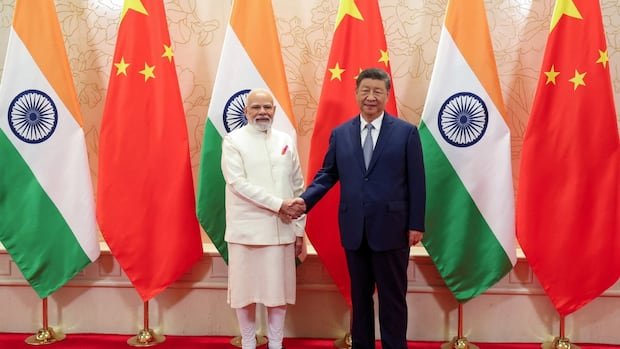Chinese President Xi Jinping and Indian Prime Minister Narendra Modi vowed to address their border disputes and enhance collaboration ahead of a regional summit in Tianjin. Modi’s visit marks his first to China since tensions escalated following fatal clashes between Chinese and Indian troops in 2020. India’s participation in the Shanghai Cooperation Organization, a regional alliance founded by China, is a key aspect of Modi’s visit.
Highlighting the positive momentum in relations, Modi expressed that the engagement with China has taken a constructive turn, emphasizing the peaceful state at the borders post disengagement. Xi, echoing similar sentiments, expressed optimism that the Tianjin summit would bolster and sustain the healthy and stable growth of bilateral ties.
Emphasizing the need to not allow border issues to overshadow the broader China-India relationship, Xi stressed the importance of prioritizing economic advancement for both nations. He underlined the significance of maintaining a partnership-oriented approach rather than fostering rivalry, focusing on mutual development opportunities rather than threats.
The meeting in Tianjin also anticipates the presence of Russian President Vladimir Putin, who is scheduled to hold discussions with both leaders. Earlier in August, a visit by China’s top diplomat Wang Yi to New Delhi signaled a thaw in relations as both sides committed to restarting border negotiations and normalizing diplomatic exchanges.
Despite challenges such as the imposition of tariffs by the U.S. on India over Russian oil purchases, efforts to mend ties between China and India have been gaining traction. The two countries have engaged in increased diplomatic dialogues and explored avenues to ease trade restrictions and facilitate cross-border movements. In a positive development, Beijing permitted Indian pilgrims to visit sacred sites in Tibet earlier this year.

